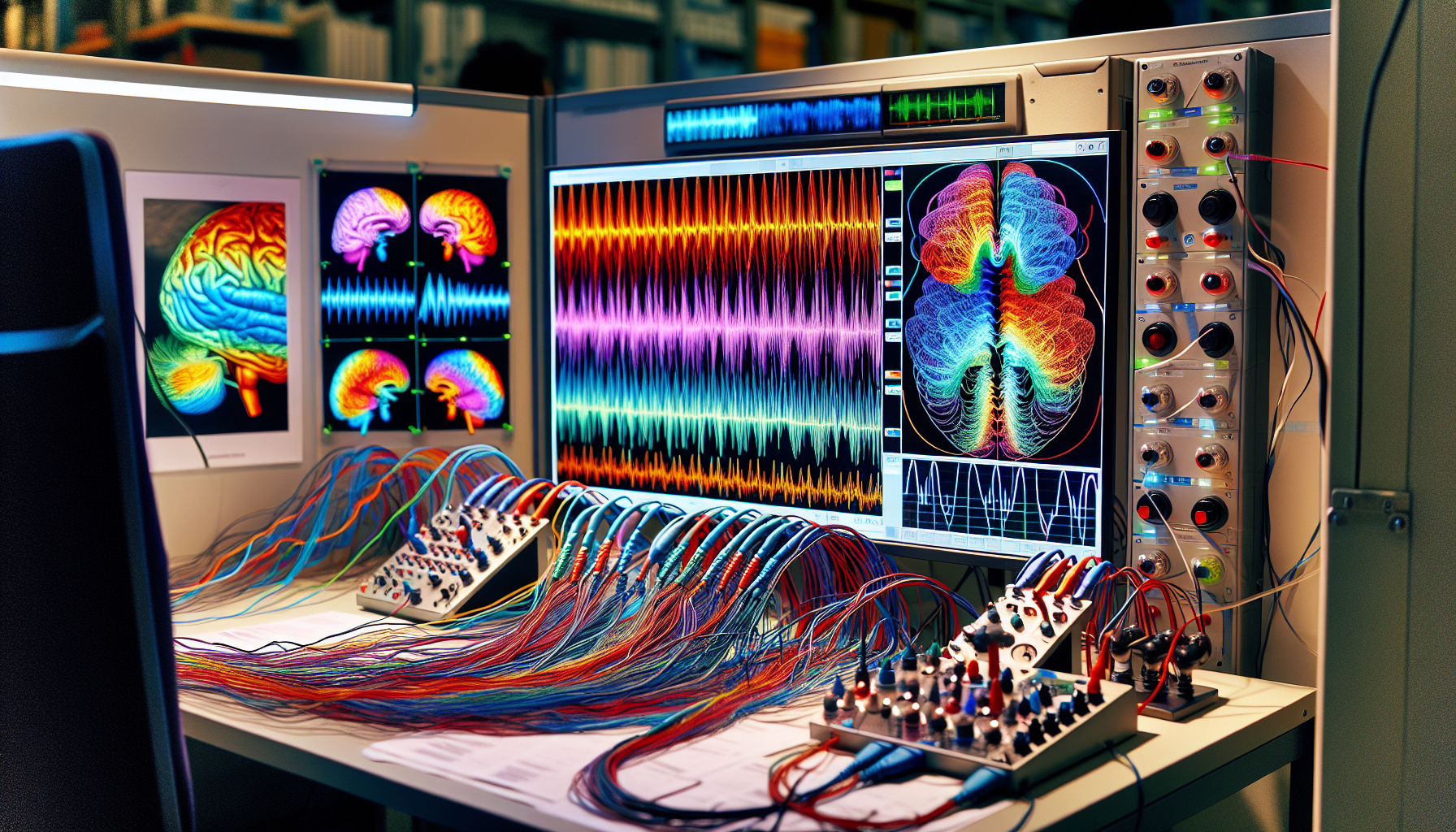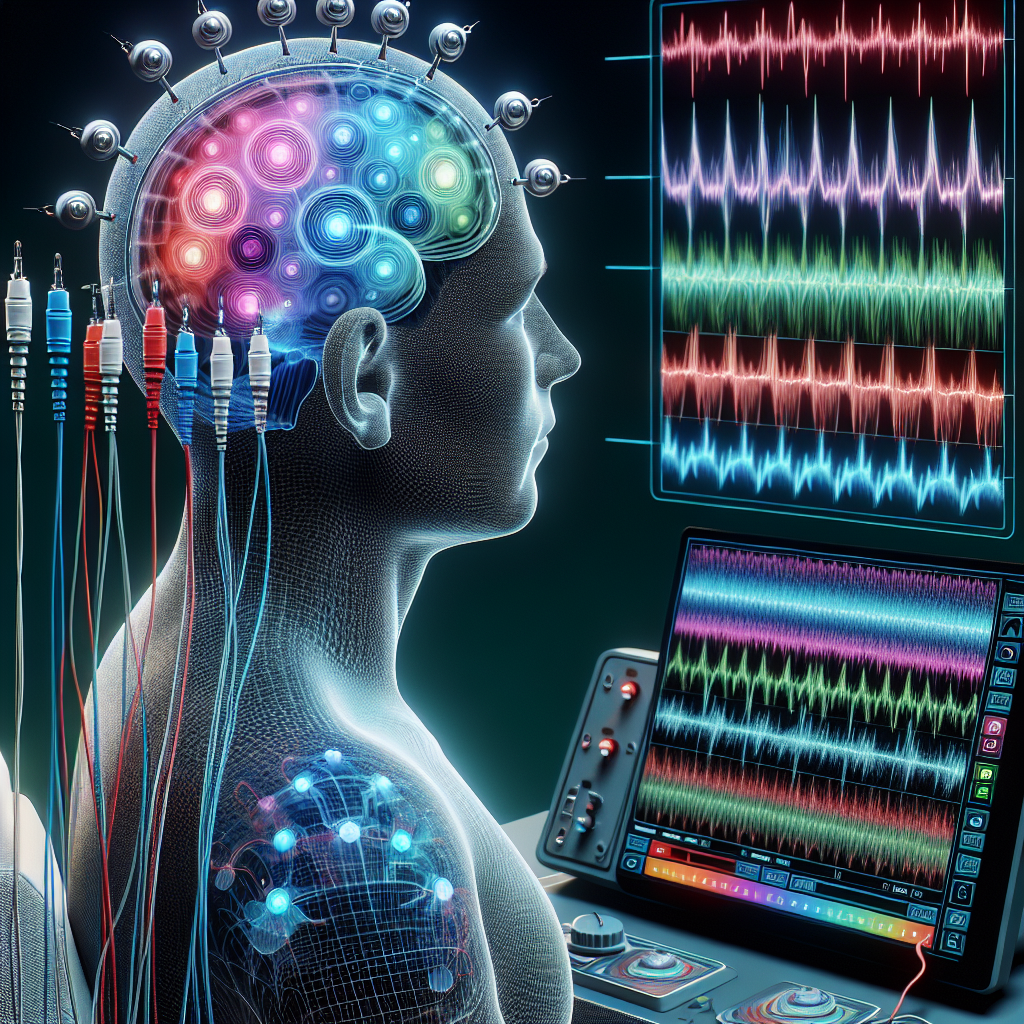In an age where mental acuity and cognitive longevity are paramount, neurofeedback training emerges as a beacon of hope, offering an innovative approach to enhancing cognitive health. This technique harnesses the power of brainwave modulation to foster improvements in attention, memory, and emotional regulation. As we delve into the intricacies of neurofeedback, we also explore its place within the broader context of brain health and its potential to augment our mental faculties.
Understanding Neurofeedback Training
Neurofeedback, also known as EEG biofeedback, is predicated on the principles of operant conditioning. This method involves monitoring brain activity and providing real-time feedback to the individual, enabling them to consciously influence their neural patterns. By promoting or reducing certain brainwave frequencies, neurofeedback training can assist in optimizing cognitive function and mitigating symptoms associated with various neurological conditions.
The process begins with an assessment of an individual’s brainwave patterns using an electroencephalogram (EEG). Once the baseline is established, tailored neurofeedback sessions are designed, during which individuals receive feedback—often in the form of visual or auditory cues—based on their brain activity. Over time, this training can lead to lasting changes in brain function, as individuals learn to modulate their brainwaves more effectively.
The Impact of Neurofeedback on Cognitive Health
Neurofeedback training has been associated with a range of cognitive benefits, including enhanced attention and concentration, improved memory retention, and better emotional regulation. These effects can be particularly beneficial for those dealing with cognitive challenges or those simply seeking to maintain optimal mental performance.
For instance, those suffering from attention-deficit/hyperactivity disorder (ADHD) have experienced significant improvements in concentration and impulse control through neurofeedback. Moreover, individuals with memory concerns, such as the elderly or those with mild cognitive impairment, have reported enhanced memory function following neurofeedback sessions.
The Role of Neurofeedback in Brain Health
When assessing the value of neurofeedback, it is essential to consider its role within the overall framework of brain health. A healthy brain is the cornerstone of cognitive well-being, and neurofeedback training is just one element within a comprehensive strategy that includes diet, exercise, and mental stimulation.
As part of a holistic approach to brain health, neurofeedback complements other strategies aimed at cognitive enhancement. For example, it can be used in conjunction with art therapy, as discussed in The Impact of Art Therapy on Neurological Health, to further encourage neural plasticity and emotional well-being.
Neurofeedback and Related Cognitive Health Strategies
In addition to neurofeedback, there are several other strategies that can be employed to support cognitive health. These include:
- Hydration and Nutrition: Understanding the link between hydration and brain energy levels is crucial, as dehydration can impair cognitive function. A balanced diet rich in essential nutrients also plays a vital role in maintaining cognitive health.
- Sleep Quality: Sleep disorders can have a profound impact on brain structure and function. Addressing these concerns is fundamental, as illustrated by the effects of sleep disorders detailed in The Effects of Sleep Disorders on Brain Structure and Function.
- Exercise: Physical activity is known to bolster the brain’s resilience to stress. Engaging in regular exercise can stimulate neurogenesis and enhance cognitive flexibility, as explored in the article on How Exercise Affects the Brain’s Resilience to Stress.
External Resources Supporting Neurofeedback’s Efficacy
To further understand the efficacy of neurofeedback training, consider these niche resources:
- A study published in the Journal of Neural Engineering demonstrating neurofeedback’s potential to improve cognitive performance (Link to study).
- Research from the Biofeedback Certification International Alliance outlining standards and best practices in neurofeedback (Link to organization).
- An article in the NeuroImage journal detailing advancements in EEG technology that enhance neurofeedback training (Link to article).
The Future of Neurofeedback and Cognitive Health
As neurofeedback training continues to evolve, its integration into cognitive health strategies becomes increasingly sophisticated. The advent of new technologies and methodologies promises to refine and expand the applications of neurofeedback, offering hope for those seeking to maintain or enhance their cognitive abilities.
The ongoing research into neurofeedback training is crucial. It not only validates the technique’s efficacy but also paves the way for its adoption in clinical settings. With a growing body of evidence supporting its benefits, neurofeedback stands poised to become a cornerstone of cognitive health maintenance and improvement.
In conclusion, neurofeedback training represents a significant advancement in the pursuit of cognitive health. By providing individuals with the tools to influence their own brain activity, it empowers them to actively contribute to their mental well-being. As we continue to explore and understand the brain’s remarkable capacity for change, neurofeedback training will undoubtedly play a critical role in shaping the future of cognitive health interventions.



